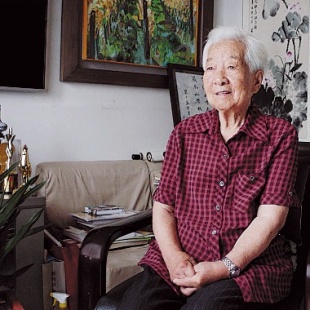Screen legends still play a leading role


The film, screened on Dec 1,1956, was adapted from a script titled Twenty-four Days. The cast's military adviser was one of the three survivors of the 120-strong detachment of Chinese soldiers that fought on the hill for 24 days, Zhang said, when he stopped and tried to hold back his tears before the lens.
"Actually Zhang played a very small role in that movie with only a two-minute performance in total. Even so, he said, as an actor, he played his role not just with skill, but with his heart," Pan says. "He told me that playing in that movie is the most significant thing in his life of more than 80 years."
Zhang was so excited when recalling the experience that, after the interview was done, he was still very emotional.
"These old artists are very simple, natural, kind and passionate," Pan says. "They love film and are very grateful to their audience. I just want to record their feelings and emotion faithfully."
For example, Tian Hua, who was born in 1928 and lost her mother at an early age, said in the documentary that she is a daughter of the Communist Party of China.
"She has believed that all her life. It's not something that I specifically highlight to enhance the theme of the film," he says.
In 93 minutes, people can see the clips from more than 10 classic movies that include the 13 artists featured in the documentary. The clips, with vivid characters and scenes they created in their youth, will bring back their memories about the good old days.
"So, privately, it's a love letter that I devote to those artists that I have met in the last 25 years. In 2014, Liujin Suiyue was taken off the air, and I didn't have a chance to say goodbye to them. This is the official goodbye," Pan says.





































